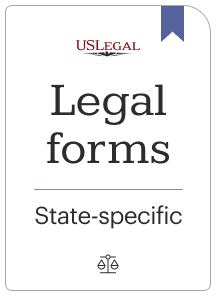

An addendum is a thing to be added; an addition. For example, it may be used to add supplemental terms or conditions to a contract or make corrections or supply omissions to a document. An addendum is often used to supply additional terms to standardized contracts, such as leases. Addendum is singular; the plural form is addenda.
Real propertysales agreements often have addenda (plural of addendum) as the buyer and seller negotiatefine points (how payments will be made, what appliances will be included, date of transfer oftitle, the terms of financing by the seller and the like). Although often they are not, addendashould be signed separately and attached to the original agreement so that there will be noconfusion as to what is included or intended.
The Pennsylvania Addendum to Real Estate Purchase and Sale Agreement refers to a legal document that serves as an additional provision or attachment to an existing purchase and sale agreement in a real estate transaction in Pennsylvania. This addendum is an essential element of the agreement as it includes specific details, conditions, and contingencies that may not be covered in the main contract. This addendum can differ based on the specific requirements of the buyer, seller, or the property itself. Some common types of Pennsylvania Addendum to Real Estate Purchase and Sale Agreements include: 1. Inspection Addendum: This addendum outlines the terms and conditions regarding property inspections, such as the type of inspection(s) to be conducted, the timeframe for completing the inspection(s), and the resolution process if any defects or issues are found. 2. Financing Addendum: This type of addendum addresses the buyer's financing-related contingencies, such as the loan application process, the deadline for securing financing, and the potential consequences if financing is not obtained or falls through. 3. Appraisal Addendum: This addendum specifies the process, timeline, and responsibilities related to property appraisal. It may cover aspects like the appraisal contingency, determination of the fair market value, and how discrepancies in appraised value might be resolved. 4. Title Contingency Addendum: This addendum focuses on the title search process, title insurance, and any potential issues that may arise in relation to the property's title. It addresses the timeframe for resolving title defects and the remedies available to the buyer or seller. 5. Home Sale Contingency Addendum: This type of addendum is relevant when the buyer needs to sell their current home before completing the purchase of the new property. It outlines the terms, conditions, and timeframes associated with the sale of the buyer's property, as well as the buyer's obligations in terms of marketing and selling efforts. In summary, The Pennsylvania Addendum to Real Estate Purchase and Sale Agreement is a supplemental document that complements the main agreement by addressing specific conditions, contingencies, or additional provisions unique to the real estate transaction. The different types of addendums listed above address various aspects like inspections, financing, appraisals, title-related matters, and home sale contingencies. These addendums play a crucial role in ensuring that all parties involved are protected and have their respective interests accounted for throughout the real estate transaction process.
The Pennsylvania Addendum to Real Estate Purchase and Sale Agreement refers to a legal document that serves as an additional provision or attachment to an existing purchase and sale agreement in a real estate transaction in Pennsylvania. This addendum is an essential element of the agreement as it includes specific details, conditions, and contingencies that may not be covered in the main contract. This addendum can differ based on the specific requirements of the buyer, seller, or the property itself. Some common types of Pennsylvania Addendum to Real Estate Purchase and Sale Agreements include: 1. Inspection Addendum: This addendum outlines the terms and conditions regarding property inspections, such as the type of inspection(s) to be conducted, the timeframe for completing the inspection(s), and the resolution process if any defects or issues are found. 2. Financing Addendum: This type of addendum addresses the buyer's financing-related contingencies, such as the loan application process, the deadline for securing financing, and the potential consequences if financing is not obtained or falls through. 3. Appraisal Addendum: This addendum specifies the process, timeline, and responsibilities related to property appraisal. It may cover aspects like the appraisal contingency, determination of the fair market value, and how discrepancies in appraised value might be resolved. 4. Title Contingency Addendum: This addendum focuses on the title search process, title insurance, and any potential issues that may arise in relation to the property's title. It addresses the timeframe for resolving title defects and the remedies available to the buyer or seller. 5. Home Sale Contingency Addendum: This type of addendum is relevant when the buyer needs to sell their current home before completing the purchase of the new property. It outlines the terms, conditions, and timeframes associated with the sale of the buyer's property, as well as the buyer's obligations in terms of marketing and selling efforts. In summary, The Pennsylvania Addendum to Real Estate Purchase and Sale Agreement is a supplemental document that complements the main agreement by addressing specific conditions, contingencies, or additional provisions unique to the real estate transaction. The different types of addendums listed above address various aspects like inspections, financing, appraisals, title-related matters, and home sale contingencies. These addendums play a crucial role in ensuring that all parties involved are protected and have their respective interests accounted for throughout the real estate transaction process.